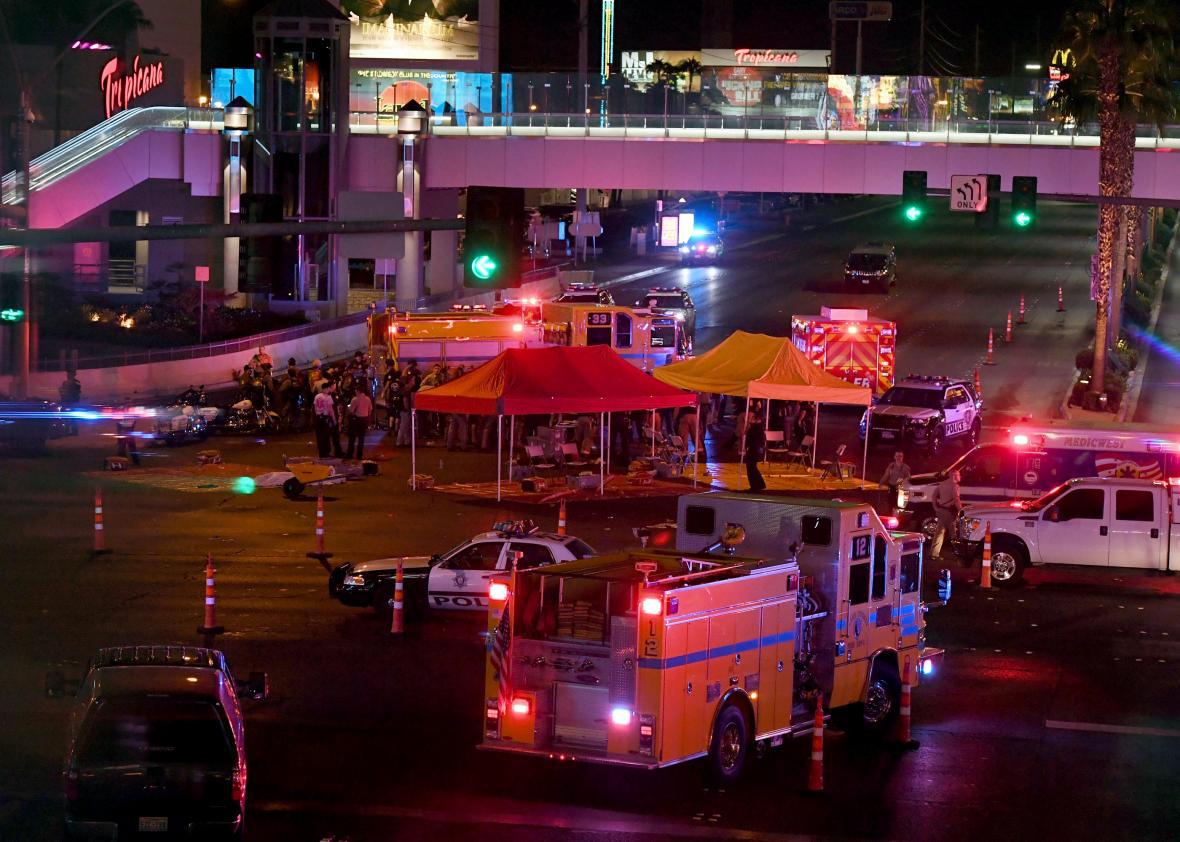Facebook has fired up Safety Check for the Las Vegas area following the deadly Sunday night shooting that took the lives of more than 50 people and injured hundreds of others. During life-threatening events, Safety Check lets people announce that they’re OK and also aggregates news and even points to fundraisers.
But many who wandered over to the Las Vegas Safety Check page Monday morning didn’t just get an update on the status of their friends. They also got a number of news posts from highly questionable sources. As Fast Company first reported, that included a link to a sketchy blog called “Alt Right News.”
According to a screen shot shared on Twitter, at one point the Safety Check page also featured a post asking for donations to a bitcoin wallet and a link to a site called The Anti Media, which led to a page with a story by “Tyler Durden.” (Very original.) The Verge reported also seeing photos from the AANR Midwest American Association for Nude Recreation on the Safety Check page for the Las Vegas mass shooting.
While Facebook seems to have since fixed these errors, it’s clear that the company is still grappling with how to weed out counterfactual or irrelevant blogposts as if they are real news. It wasn’t just Facebook that did a poor job of getting the news out this morning. Google search results about a man falsely accused of being the shooter also surfaced threads from 4chan, a notoriously shady message board, where posters were furiously trying to find the perpetrator, whom they ended up misidentifying.
In a statement shared with reporters, Google blamed the promotion of 4chan in its search results on its algorithm, which apparently is now properly tweaked. But according to some background bullet points a Google spokesperson shared with a journalist from The Outline, the company admitted that “when the 4chan story broke, it triggered Top Stories which unfortunately led to this inaccurate result.” But that implies that Google’s algorithm is tuned to read posts on 4chan as potential news source for its Top Stories promotion at the top of its search results, and if that is the case, the company probably needs to re-evaluate what sources it pulls into that feed. Google hired the founder of 4chan, Christopher Poole, in 2016, though there’s no indication that he’s involved with the search results that promoted 4chan.
Misleading information isn’t just harmful for people in search of reliable information and help. It also comes at a terrible time for these tech companies, as they’re now under the microscope of the FBI, Congress, and the public for how Russian-backed misinformation and all kinds of fake news stories were able to perpetuate on their platforms and potentially sway voters in the run up to the 2016 election.
Both Google and Facebook seem to have acted fast to fix the problem here. But what’s going to happen next time people go to the internet to learn about devastating news and connect with friends and family who may be in danger?
